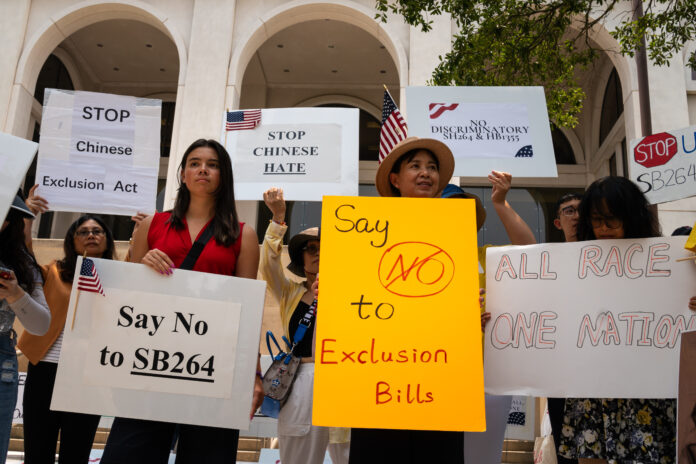By Julia Tong
On Tuesday, 80 people gathered outside the steps of the Joseph Woodrow Hatchett U.S. Courthouse in Tallahassee, Fla. Wearing yellow shirts and braving the 100-degree heat, they rallied against Senate Bill (SB) 264, a bill that restricts land ownership by Chinese Americans.
The rally was organized by the Florida Asian American Justice Alliance (FAAJA) and the Yick Wo Institution and brought together affected people and groups from both within and outside of Florida. Protestors rode “freedom buses” to attend the rally in Tallahassee; organizations in attendance included the National Iranian American Council, Stop AAPI Hate, American Civil Liberties Union (ACLU), National Association for the Advancement of Colored People (NAACP), National Fair Housing Alliance and League of United Latin American Citizens (LULAC).
Patrick Toomey, a Deputy Director of the ACLU, is part of the team challenging SB 264. Ultimately, the law, he says, is “unjustified, unfair and unconstitutional.”
“It’s a sweeping law that is blatantly discriminatory, and the state’s efforts to pretend otherwise are obvious contortions,” said Toomey.
LATEST STORIES
“We are looking forward to being in court today to explain why this unconstitutional law must be halted,” he added.
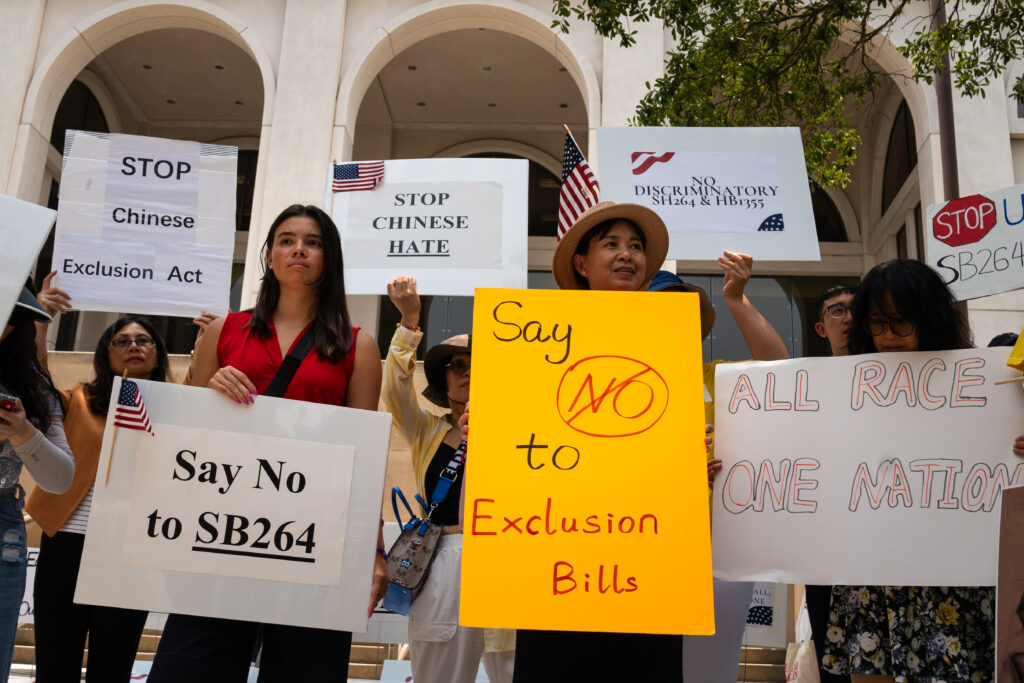
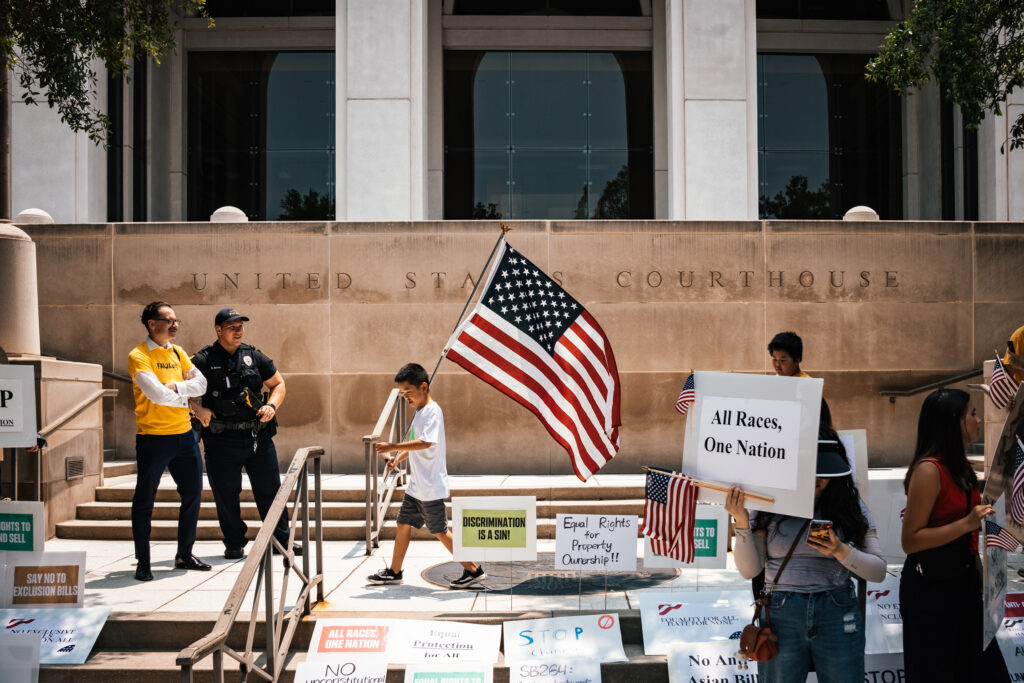
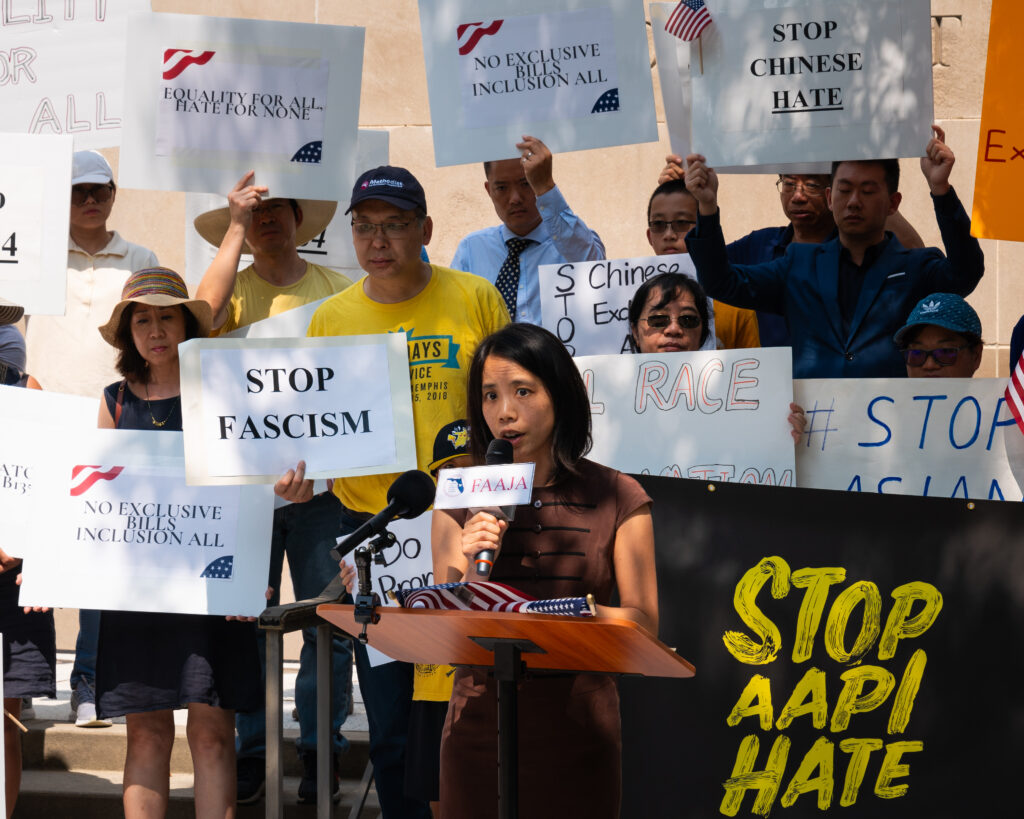
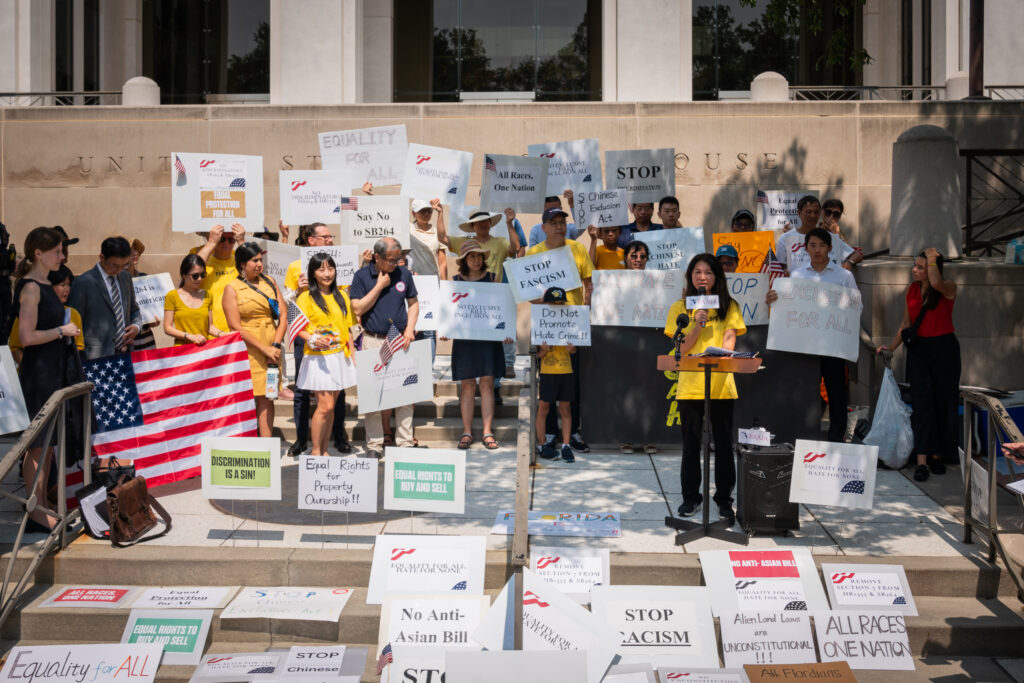
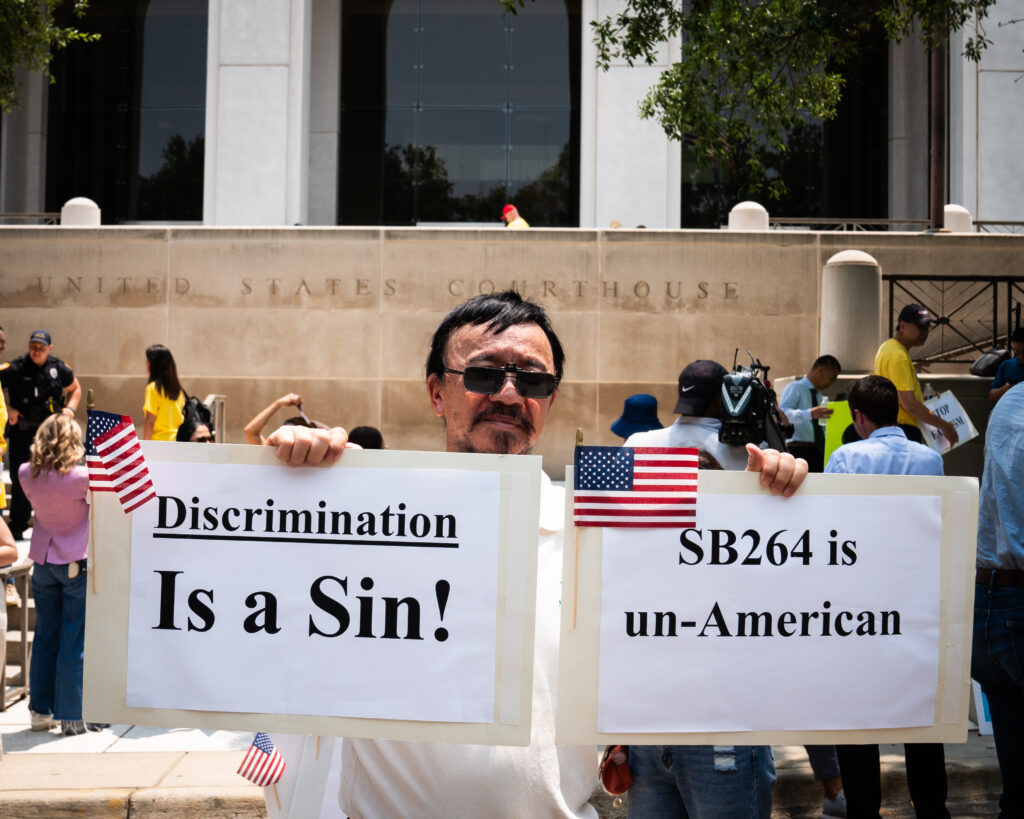
About SB 264 — and the fight against it
Formally referred to as the “Interests of Foreign Countries” Act, SB 264 is one of many alien land bill laws being passed across the country. The bill restricts people from seven “countries of concern” — China, Iran, Cuba, Venezuela, Syria, Russia and North Korea — from buying property in the state. It particularly targets Chinese Americans, preventing most of them from buying property outright.
The law cites national security concerns as the reason for these restrictions. But opponents say this argument is disingenuous.
“Like so many times in the past, these are racist policies being promoted based on false claims of national security,” Toomey said. “Florida’s dangerous new law should sound alarm bells for anyone who has taken a history class or read about similar racist efforts over the past century to weaponize false claims of national security against Asian immigrants and other marginalized communities.”
But affected communities in the state have been fighting back. In May, four Chinese immigrants who live in Florida, alongside a Florida real estate brokerage firm, challenged the law. The plaintiffs were represented by DeHeng Law Offices, the ACLU, Asian American Legal Defense and Education Fund and other organizations in the resulting case, Shen vs. Simpson.
The plaintiffs argued that SB 264 is unconstitutional under the the Fair Housing Act of 1968, which bans discrimination when buying a home, and the 14th Amendment’s Equal Protection Clause. The Department of Justice concurred, filing a Statement of Interest in support of the plaintiffs and the ACLU in June.
“Everyone in the United States is entitled to equal protection under the law, including citizens of other countries,” said Toomey, who is currently a lawyer representing the plaintiffs.
“[SB 264] is discriminatory,” he added. “It targets people from a handful of countries with severe criminal penalties based on where they’re from and puts huge parts of the state off-limits for people who simply want to buy a home.”
Despite these concerns and the statement of interest, however, the law was passed in May and is set to take effect on July 1st. In response, the plaintiffs of Shen vs. Simpson filed for a preliminary injunction, which would bar the court from enforcing or implementing the law until the case is decided.
The hearing, which took place on Tuesday, was to determine whether or not the preliminary injunction would be granted. But the legal stakes were higher than simply temporarily stopping SB 264 from taking effect, Toomey said. To grant a preliminary injunction, the court must find that the plaintiffs are “substantially likely” to win a case.
In short, granting the injunction may indicate that courts will rule in favor of the plaintiffs — and strike down SB 264 — in the future.
“It’s not a final ruling,” Toomey said. “But it does reflect the court’s kind of initial or preliminary view on the strength of the arguments in the case.”
“We say [SB 264 is] legalized hate.”
According to advocates, the injunction against SB 264 is especially urgent. Immigration lawyer and FAAJA founder Echo King said the bill has already had significant impacts on Asian Americans and immigrants in Florida.
Even before going into effect, the law has already deterred the sale of property to Chinese people — and Asian people as a whole — in the state. King said that real estate realtors have told her that Chinese people are also selling houses well below market value due to fears surrounding the law.
Critically, King emphasized that SB 264 is not clearly written and has confusing terms. This ambiguity, combined with the sharp penalties for breaking the law, has stoked fear among Asian American residents of Florida.
“The restrictions is so not clear. Just for regular people to buy and sell a house that is not in the restrictions — it’s very hard to determine,” King said.
“Criminal imprisonment — that’s a really harsh penalty for buying or selling a house,” she added.
Beyond that, however, Asian American advocates in particular fear that the law’s passing will only intensify the discrimination Asian Americans face. In particular, King said that further conflating Chinese people with the Chinese government — and thus viewing them as national security threats — is damaging for all Asian Americans, regardless of nationality.
“This law definitely makes it worse. And actually, it’s [more] dangerous because now it’s the law,” King said. “We say it’s legalized hate.”
“It’s going to be a long fight.”
In the immediate future, King, Toomey and other opponents of SB 264 are waiting on the results of the hearing, which will not be released for another one to two weeks. If the injunction is granted, then SB 264 will not be enforced until Shen vs. Simpson is decided. If the injunction is denied, however, the team is prepared to file an appeal.
After the hearing concluded on Tuesday, however, King said she is cautiously optimistic about the case’s outcome.
“We have [the] Constitution; we have [the] 14th Amendment,” she said. “That’s why we can challenge this law.”
Regardless of whether the injunction is granted or not, however, King said that there’s a “long fight” ahead. More support and advocacy is needed to combat alien land laws, she said, especially from the Asian American community both in and outside of Florida.
“Chinese Americans or Asian Americans, we really need to pay more attention to what’s going on in the legislature, and we really need to stand up,” King said. “Our voice will need to be heard. 80 of us is not enough.”
Furthermore, this lawsuit has nationwide stakes. Florida is not alone in passing alien land laws. 2023 has seen a surge of restrictive land laws nationwide. According to APA Justice, 33 states have introduced alien land bills nationwide. Of those states, 12 have already passed those bills into law.
However, SB 264 stands out in this landscape: it is the first alien land law to be passed and has some of the most restrictive terms and severe penalties. The outcome of Shen vs. Simpson could have nationwide ramifications, setting a precedent for lawsuits in other states.
This context, King said, underscores the importance of the rally on Tuesday — and the ongoing fight against SB 264.
“The fight in Florida is not alone,” she said. “This hurts the whole of Chinese American in the whole country and also other groups as well because discrimination against one race will be discrimination to all, right? So we really [need to] unite together.”
“We understand that it takes a long, long time,” she added. “It’s going to be a long fight.”
AsAmNews is published by the non-profit, Asian American Media Inc. Make a tax-deductible donation of at least $40 or pledge a monthly recurring donation of at least $10 by August 31 and receive a free copy of The Legend of Mu Lan: Heroine of Ancient China, the inspiration for the classic Disney movie. We are supported in part by funding provided by the State of California, administered by the California State Library in partnership with the California Department of Social Services and the California Commission on Asian and Pacific Islander American Affairs as part of the Stop the Hate program. To report a hate incident or hate crime and get support, go to CA vs Hate.

